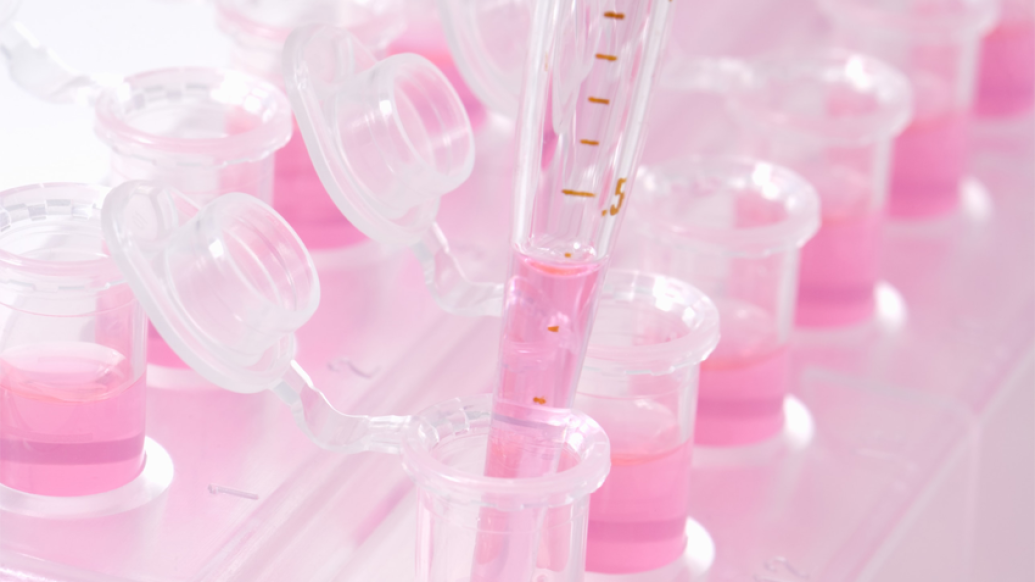Researchers have developed a new technique using ovarian follicles that could help young women with cancer preserve fertility.
6:01 PM
Author |

For many young women diagnosed with cancer, concerns about fertility are so important that they may even influence critical decisions about cancer treatment.
Should a woman delay starting cancer treatment to undergo fertility preservation? What is the possibility of reintroducing cancer cells during the fertility preservation process?
University of Michigan researchers have identified a potential new approach to fertility preservation designed to address these concerns.
The work, done in mice, has potential to expand the options physicians can offer for girls and women undergoing cancer treatments that may impact their future fertility.
In the study, published in the nature journal Scientific Reports, researchers isolated primary ovarian follicles, consisting of the oocyte and surrounding cells. They encapsulated the follicles in a gel and then reimplanted them in mice.
The ovary can have tens to hundreds of thousands of follicles. If we can access that pool to preserve fertility, we could potentially create many more chances for reproductive success for these patients.Lonnie D. Shea, Ph.D.
All mice transplanted with the follicles resumed normal ovarian cycles. One-third produced live births.
Current fertility preservation options for women include embryo or egg freezing, performed using hormonal stimulation to induce ovulation. Hormonal stimulation is not possible for all young patients. Some are too young and some cannot afford to delay cancer treatment.
"This research is an important advance in the potential expansion of fertility preservation options for young patients who may not be able to undergo hormone stimulation to induce ovulation before beginning chemotherapy," says study author Jacqueline S. Jeruss, M.D., Ph.D., associate professor of surgery and director of the Breast Care Center at the University of Michigan Rogel Cancer Center.
"This study also provides new information on a method to reduce or eliminate cancer cell exposure during the fertility preservation process," she adds.
The fear of reintroducing cancer
Researchers are also studying ovarian tissue transplantation for patients with cancer. A key concern with this technique is the risk that the ovarian tissue may harbor latent cancer cells that, upon transplantation, could be reintroduced back into the patient. Cancer cells are known to circulate throughout the body even in early stage invasive disease.
In this study, when researchers isolated the follicles, they substantially reduced the presence of cancer cells. Two of the five tested transplanted materials had no residual cancer cells.
"The success rate for traditional in vitro fertilization is approximately 33 percent per cycle. For cancer patients, the oocytes or embryos that are cryo-preserved before cancer treatment may become their entirere productive future," says study author Lonnie D. Shea, Ph.D., William and Valerie Hall Chair and professor of biomedical engineering at the University of Michigan.
"The ovary can have tens to hundreds of thousands of follicles. If we canaccess that pool to preserve fertility, we could potentially create manymore chances for reproductive success for these patients," Shea adds.
Fertility and survivorship
The authors tested three types of biomaterial for preserving the follicles. They hope that by refining their study techniques they can produce even better results — and ensure that all cancer cells are consistently eliminated from the follicles every time tissue is transplanted.
The researchers envision a possible future state in which ovarian follicles could be extracted and preserved till a woman is ready to pursue pregnancy. At that point, the follicles would be matured and then fertilized. More research is needed before this technique can be tested in humans.
"Fertility is an important part of survivorship for young cancer patients," Jeruss says. "It's crucial to identify new techniques to make more fertility preservation options available for women and girls being treated for cancer."

Explore a variety of health care news & stories by visiting the Health Lab home page for more articles.

Department of Communication at Michigan Medicine
Want top health & research news weekly? Sign up for Health Lab’s newsletters today!





